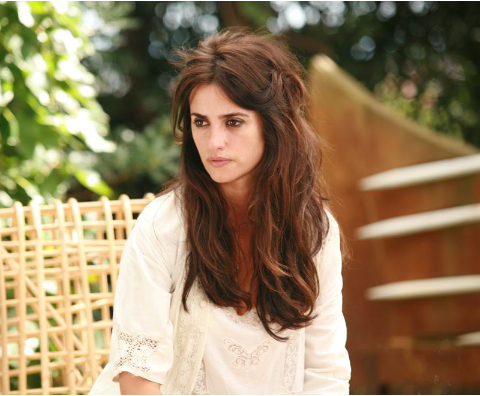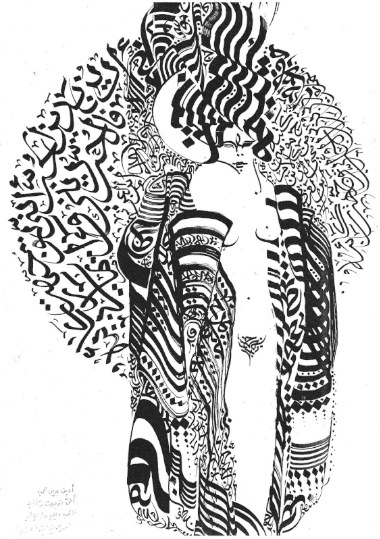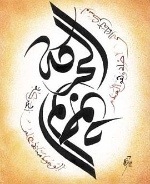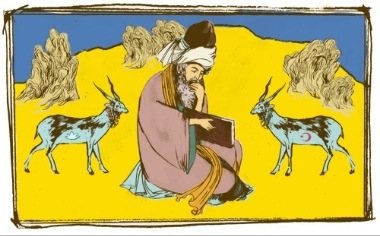You are currently browsing the category archive for the ‘Uncategorized’ category.
قال محمود درويش
“الآن كنت، الآن سوف تكون، فأعرف من تكون، لكى تكون”
قال سمعان بطرس و قلتُ: “على كلمتك ألقىِ الشبكة”
قال الشيخ أحمد الرفاعى: “أى أخى، أنت غيرٌ، ونفسك غيرٌ، وغيرك غيرٌ. كُلُّ ما أدركه بصرك، واختلج بشكله وكيفيته سرُّك، فهو غيرٌ. ربُّنا لا تكيِّفه الأفكار، ولا تدركه الأبصار”
أنا النبى
الذى لا يؤمن بتمام نبوته
أنا الرسول
الذى لا يعرف غاية رسالته
أنا المؤمن
بدين الحب
أنا الكافر
بكل الأديان الآخرى
أنا السؤال،
من أنا؟
أنا الجواب،
هو أنا
أنا الحيوان
الذى، من الدخول و إلى الخروج، لا تنقضى حاجته
أنا الأنسان
الذى، من الشروق و إلى الغروب، لا تكتمل محبته
أنا الإله
الذى، من الأبد و إلى الأزل، لا يحتمل أنسانيته
أنا الظاهر
بين الحروف و الصور
أنا الخفىّ
خلف الحروف و الصور
أنا الموحّد
الهائم فى وحدة الوجود
وفى الفناء فى الموجود
أنا الملحّد
الحائر التائه فى بدعة السجود
و فى الرياء من أجل الخلود
أنا الحياة الدنيا
أنا الحياة الآخرى
أنا هاوية الجحيم
أنا فردوس النعيم
أنا النور
الذى يغلب الظلمة
أنا الظلمة
التى تغلب النور
أنا نور العالم و عالم النور
أنا سواد العدم و عدم السواد
أنا المكان، أنا الزمان
أنا الصلة بين المكان و الزمان
أنا عملية التغيير
بل أنا أمكانية التغيير
جئت هنا من هناك
لأذهب إلى حيث لا يوجد هنا و لا هناك
وصلت الساعة من زمن بعيد
لأذهب قريباً إلى حيث لا توجد ساعات و لا مواعيد
أنا حكاية التاريخ و غواية التأريخ
أنا لغز الغد
و ذراتى ذرات الوقت
أنا الماء و الهواء و التراب وشعلة النار
المادة
أنا خيط من نسيج الكون الذى لا يهدأ
أنا الفيض و الأهواء و الثبات و ثورة العشق
الروح
أنا كلمة من أصل الخلق الذى لا يصدأ
أنا اللقاء
و الشوق الذى لا يسكن باللقاء
و إن كان يفرح بالوعد
أنا الفراق
و الحنين إلى الغربة الذى لا يعرف معنى القرب
إلا فى البعد
أنا الفقير
إلى الله و إليها
أنا الغنى
بالروح و بها
أنا المعرفة
العارفة حدودها
أنا الجهل
الجاهل حدوده
أنا المسجون
فى سجن العقل المتعالى فوق الجنون،
العقل الذى لم يعرف يوماً سكون
أنا المجنون
أنا شجن العبث المتوارى خلف الفنون،
العبث الذى لم يعرف يوماً قانون
أنا الموجود
الذى يرى فى الرحيل إلى العدم انتصاراً
أنا المفقود
الذى لا يستطيع إلى الوجود انتظاراً
وهو و هى الوجود
سأبقى أنا أنا
وسيبقى هو هو
و هى هى
أنا غير
بل أنا الغير
أنا المتاهة، أنا الكنز، هى خريطة المتاهة و هو صاحب الكنز. أنا باب البيت، أنا مفتاح الباب، هى البيت و أهله و هو صاحب البيت.
“يا باب أيا مقفول .. إمتى الدخول؟
صبرت ياما واللى يصبر ينول
دقيت سنين .. و الرد يرجع لى: مين؟
لو كنت عارف مين أنا .. كنت أقول
عجبى!!”
– صلاح جاهين
Why is it hard to answer this question? Perhaps because we never answer questions like it at all. It’s a unique question. Plus we think of ourselves more than being in the moment we are in. Not just our life is what defines us. It’s also the history before us, the history of our people. The history of the planet before humans and animals were here, its history before life existed. The history of our sun and of the whole universe ultimately too. This is why people like to originate everything in cosmology. The tendency to make such theories is what produces religion, ideas of the soul and the supernatural in general.
The answer that I have right now is this: I am a self-aware process that can think.
It’s interesting to refer to myself with ‘that’ and not ‘who.’
Ask yourself: Who am I?
Invariably the internal answer will be autobiographical – an identity based on the past. It will be a description of a continuity from childhood through adolescence to adulthood which is all past memories and no longer exists. Memory is the mirror and we live on the wrong side.
Seldom will anyone answer the question of Who am I? with: I appear to be the process of reading this page.
I, Orhan Veli.
The famous author of the poem
“Suleyman Effendi, may he rest in peace,”
Heard that you are curious
About my private life.
Let me tell you:
First I am a man, that is,
I am not a circus animal, or anything like that.
I have a nose, an ear,
Though they are not shapely.
I live in a house,
I have a job.
Neither do I carry a cloud on my head
Nor a stamp of prophecy on my back.
Neither am I modest like King George of England
Nor aristocratic like the recent
Stable keeper of Celal Bayar.
I love spinach.
I am crazy about puffed cheese pastries.
I have no eyes
For material things,
Really not.
Oktay Rifat and Melih Cevdet
Are my best friends,
And I have a lover,
Very respectable.
I can not tell her name.
Let literary critics find it.
I also keep busy with unimportant things,
Only between projects,
How can I say,
Perhaps I have a thousand other habits,
But what is the point of listing them all.
They just resemble these.
It’s clear that here what was left unsaid is just as unimportant as what was said.
More Veli here.
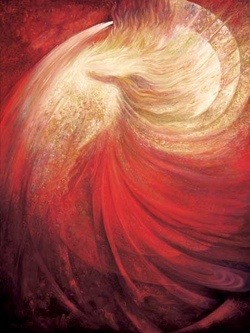 يا رب إجعل إرادتنا من الأشياء و الأسباب لا قشورها بل جوهرها، و أنزع لنا كئوسنا لتتوهج أكواننا الصغيرة كالمصابيح الكبيرة، ويصير في وسع كل واحد منها أن يضيء ألف مصباح
يا رب إجعل إرادتنا من الأشياء و الأسباب لا قشورها بل جوهرها، و أنزع لنا كئوسنا لتتوهج أكواننا الصغيرة كالمصابيح الكبيرة، ويصير في وسع كل واحد منها أن يضيء ألف مصباح
السهروردي في “لا تسقني وحدي” لسعد مكاوي –
“Dear God, make our will emanate from the essence of matters and purposes not from their appearance. Spare us our cups so that our humble worlds may radiate like great candles and each candle may light a thousand candles”
– Suhrawardi in Saad Mekawi’s “Don’t Fill Me a Solitary Cup”
In a series of 7 articles in Egyptian newspaper Al-Masry Al-Youm, Dr. Youssef Ziedan beautifully introduces how the Sufis view the world.
In case this is the first time you hear of Dr. Ziedan, he is a history scholar and head of the Manuscripts Department at the Bibleotheca Alexandrina. He is also a novelist with two must read gems out so far- “Azazeel” (Belzubub) and “Fe Zel Al-Afaa” (Shadow of the Serpent)- and another one called Al-Nabti (The Nabtian)on the way as well as a high anticipated study called “Arabic Theology and the Origins of Religious Violence”.
This last year I reviewed Azazeel, wrote about one of its discussions, and interviewed Dr. Ziedan afterwards.
But more recently I have been reading reprints of some of his brilliant revisions of Sufi literature, and this series about Sufism that he just finished in which he highlighted the major aspects of Sufi thought. So I collected them in this pdf (The Sufi Outlook) for anyone to download without going through the trouble of reading them online. I hope some of you find this little effort useful.
This week Ziedan started a new series where he goes into his pick of the gems of Sufi literature. Part 1 was published this Wednesday.
Symptom:
If yesterday I would have spent a sleepless night thinking of you, tomorrow your existence might not even interest me.
 “Only unfulfilled love can be romantic.”
“Only unfulfilled love can be romantic.”
–Maria Elena in Vicky, Cristina, Barcelona.
الشوقُ يسكن باللقاء ، والاشتياقُ يهيج بالالتقاء .. ما عرف الاشتياق إلا العشَّاق .. للنار التهابٌ وَمَلَكَه ، فلابد من الحركة ، والحركة قلق ، فمن سكن ، ما عشق .. كيف يصحُّ السكون ، وهل فى العشق كُمون؟ هو كلُّه ظهور ، ومقامُه نشور
Longing comes to rest with meeting,
But yearning only gets stronger with it.
Only lovers know yearning.
When its fire blazes and holds sway,
Then motion is a must,
And motion unsettles,
So he who settles or rests is not in Love.
How can rest be possible?
Is Love ever still?
It’s all emergence and its province a resurrection.
In a related line of thought, Ibn Arabi also said that “The principle of the universe is movement. If it stops moving, it will return to non-existence.” You can read this below which I found here.
He. His essence speaks through me.
I have been looking for myself!
Jalal al-Din Rumi: one of the greatest Sufi poets/teachers who wrote in Persian. I have looked and looked in Cairo’s bookstores but I can’t find any recent prints of his works (translated into Arabic). Not even light collections of poetry. Not one.
I even asked a bookstore clerk at Al-Shorouk “how come, don’t people ask for them?” and he told me no one really asks. It seems English translation is the way to go.
This deficiency goes on while constantly decent new translations are showing up in the English speaking world (for example, this in 2007). And studies/review articles in newspapers too.
Franklin Lewis is currently publsihing a series for The Guardian on Masnavi -Rumi’s greatest work, and perhaps the greatest of all Persian literature, some even call it the Persian Quran. He is on part three now of this Masnavi exposition and there will be five more to come.
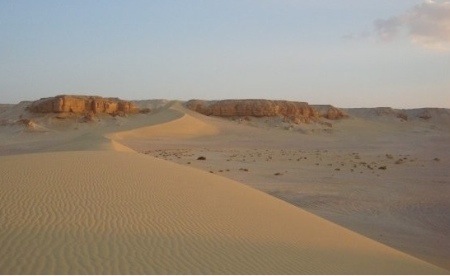 “Strive to give back the Divine in yourselves to the Divine in the All.” -Plotinus
“Strive to give back the Divine in yourselves to the Divine in the All.” -Plotinus
In this desert trip I came back from, some thoughts came flying over me. They were vivid and clear back then but now that I write them down and that will you read them they are only a faint echo of what once was.
Perhaps I should not have imprisoned them as words here in this space. Perhaps they were better off roaming in the unbounded sky over the desert they came from. But I am a human being and this is what I do: turn thoughts into words.
Here they are anyway, and perhaps some of you who read them will one day take these thoughts back with you to a desert and try to remember them there and utterly fail to do so and in this failing the thoughts will be set free.
>>
It’s almost inconceivable how many different settings/scenes one can find oneself in on this little planet of ours. So many standpoints and so many angles. What’s more inconceivable is how different these many landscape are from one another, how much variety is in the world. Add to this the time dimension and this difference reaches new heights. My imagination breaks down at this point.
The one thing harder to imagine than time not existing is time actually existing in all its fullness. Time is the thread that weaves old realities into new ones ever so consistently. The creator and destroyer whose plans are never hidden, only hard to see.
Regardless of this or perhaps because of it, it seems that we are driven to look for the unchanging, the recurring, that which defies time because the timeless in a way defines what time it is (change) and what time is (as a concept, or a property of the universe).
We look for the unchanging around us like the Sun and all Heavenly bodies. Like gods. Like statues and drawings, the glimpses at gods. Like ideas and permanent connections, the souls of gods. Like words and music, the bodies of gods.
And the true timeless is the simplest. And the simplest has no divisions. It is a unit, a One, and because it is so basic it is the One. This Oneness must be the only property/attribute of what’s fundamental. Otherwise, divisions set in and simplicity is ruined.
Is this One in me? Is this One what’s missing from me? Does it complete whatever is incomplete?
Does its simplicity imply that is also good/loving and beautiful? I think so.
<<
I have come across this sentiment in many forms many times before in philosophical works: Leibniz, Spinoza, some Sufis, and Plotinus. I have read the latter a long time ago but was pushed away by his mysticism and that him right after philosophy took a turn away from this line of thought, Christian philosophy of St. Augustine that is, but then it turned back to it in the strange philosophy of Spinoza and then in Leibniz’ even stranger concept of Monads.
It seems there was nothing neither wrong nor right in this philosophy but now that I am reading Sufi poetry and am well into its theological visions, it seems Neoplatonism and Gnosticism must have had an influence on the Sufis. There is the same idea in both schools of philosophy which draws me into them.
But this idea of the One which I had is closest to what Plotinus thought. Wikipedia describes Plotinus’ One:
Plotinus taught that there is a supreme, totally transcendent “One”, containing no division, multiplicity or distinction; likewise it is beyond all categories of being and non-being. The concept of “being” is derived by us from the objects of human experience called the dyad, and is an attribute of such objects, but the infinite, transcendent One is beyond all such objects, and therefore is beyond the concepts that we derive from them. The One “cannot be any existing thing” but “is prior to all existents”. Thus, no attributes can be assigned to the One. We can only identify it with the Good and the principle of Beauty.
I came to the conclusion/vision that “yes, Oneness implies Beauty and Goodness” before reading Plotinus again. It was just a feeling though. Not sure why anyone would be inclined or compelled to believe it. I have no analysis to back it up.
I wonder if any form of analysis can be useful when dealing with something with only one attribute, the One having only Oneness. If analysis doesn’t work, then I can only demand a method which works without annihilation or architecture, something which I am still looking for.
Now I will go dive into Plotinus’ Enneads.

To someone who I once cared for, a new favorite poem by a new favorite poet:
أيا من سلوا عنا ومالوا إلى الغدر وما لزموا أخلاق أهل الهوى العذري
وبعد حلاوات التواصل والهوى جنوا مر طعم الهجر من علقم الصبر
إذا ما رجعتم عن محبتكم لنا مشاة رجعنا عن محبتكم نجري
وإن كنتم في الجهر عنا صددتم ففي سرنا عنكم نصد وفي الجهر
سكنتم فؤادي مرة ورحلتم فأصبح منكم خالياً خالي السر
وقال لي العذال هل أنت راجع إذا رجعوا عن غدرهم قلت لا أدري
شهاب الدين ابن الخيمي-

